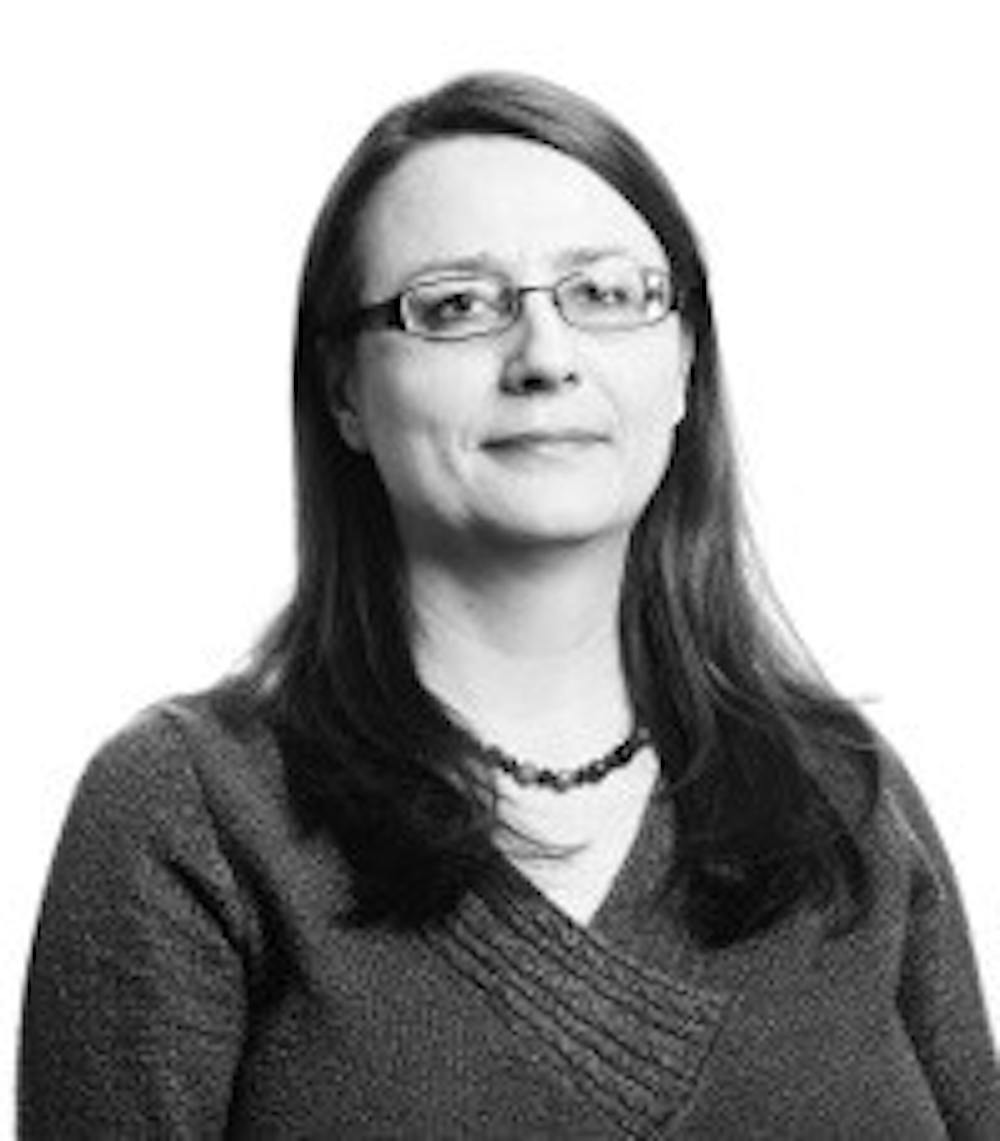By Rayce Patterson | Contributor
The noises of the night include many things. They don't often include the thunder of gunshots in the street. They don't often include the clanking of tear gas grenades thrown onto balconies or the thrumming of military planes patrolling the starlit sky.
These are Professor Renata Kantaruk memories, who was born and raised during one of the most pivotal moments of modern Polish history, when Poland was under the rule of Poland's military. Kantaruk was grew up behind the Iron Curtain in a time when Poland was deep in communism. During her high school and college years, she lived through the fall of the Berlin Wall and the period of transition in Eastern Europe from communism to capitalism. While she remembers these events quite clearly, Kantaruk doesn't feel affected by them psychologically.
"If you're a child, you kind of just take things as they come, and you think of them as normal," Kantaruk said. "A lot of things now-when I look back-were really bizarre, but they were just part of your life, and you didn't really think anything about them."
But when the Berlin Wall finally fell in 1989, it created a shift in Europe that even Kantaruk felt. She remembers that before the Wall fell, grocery stores were practically empty, but things changed almost overnight.
"It felt like the next day the shelves were full of different types of groceries . . . from different locations, (some) made in Poland but also imported goods," Kantaruk said. "It was quite overwhelming."
After the turmoil was over, Kantaruk went on to get her Bachelor of Arts in teaching English as a Foreign Language and her Master of Arts in English Philosophy while still living in Poland. Later, Kantaruk attended an international Christian conference in Austria. It was there she met her husband, a Taylor University professor. After they married, Kantaruk decided to move to the United States to be with her husband in 2004. Around that time, Stephen Bedi, who was the provost emeritus, was interested in starting a Teaching English to Speakers of Other Languages (TESOL) course at Taylor and offered Kantaruk the position as an instructor.
"That was additionally attractive to me because I knew that if I came here I would have something to do within my profession and vocation," Kantaruk said.
Now, over a decade later, Kantaruk is still training students to teach English in Taylor's TESOL program and even took students back to Poland in 2005 and 2006. In the past few years, Taylor has regularly sent students to Poland on Lighthouse trips, and Kantaruk teaches these students about Polish culture and gives crash courses in how to teach the English language. She even helps other Taylor students teach English as a Second Language in Marion to people wanting to become U.S. citizens.





